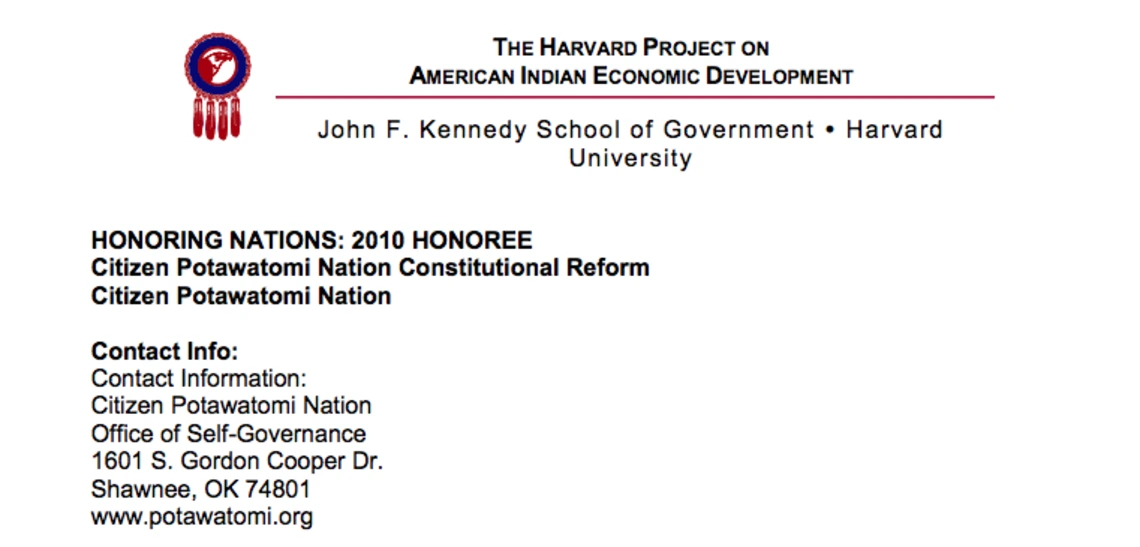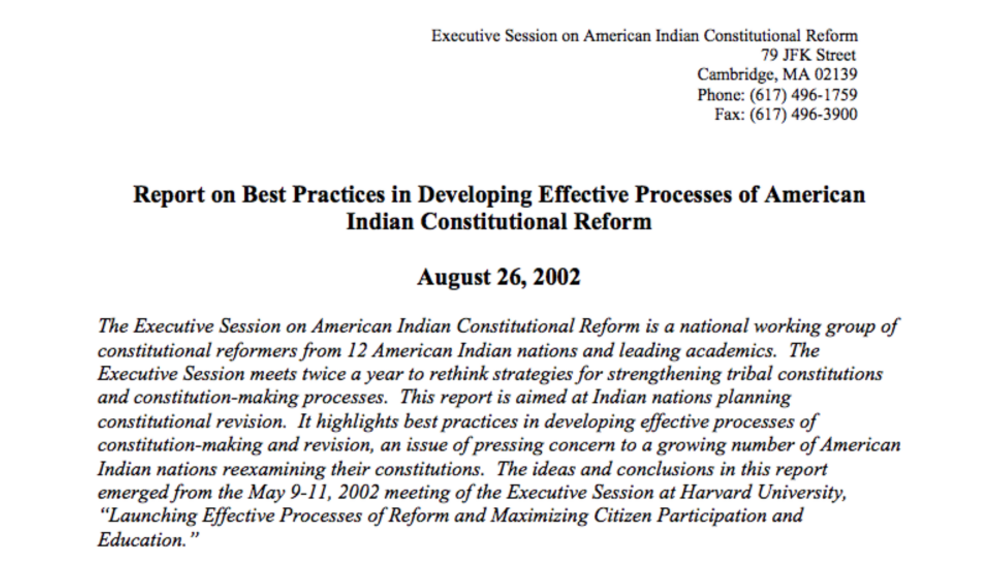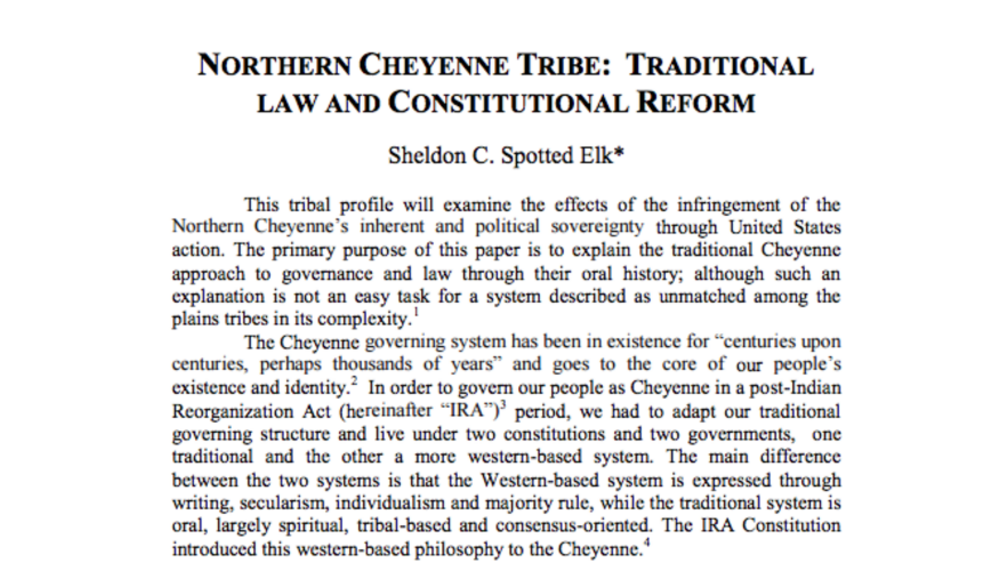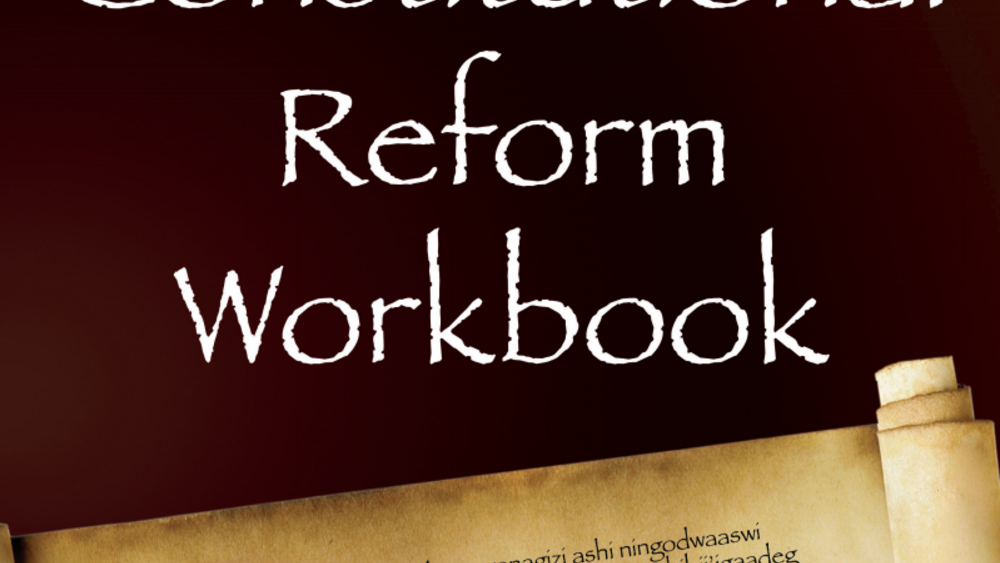Tribal governments across the United States work tirelessly to provide their citizens with effective systems of governance. After years of failed assimilation attempts, the federal government imposed blanket political systems upon almost all tribes regardless of those systems’ effectiveness or cultural suitability. Given such misdirection, it is little wonder that many tribal governments find it difficult to meet the demands of the 21st century now that they have greater business dealings, substantial legal jurisdiction, more control over service delivery to tribal citizens, and increasingly mobile populations. In response to these pressures, the Citizen Potawatomi Nation of Oklahoma began a radical constitutional reform process designed to make its government more responsive, stable, and predictable. The task was daunting. The Dust Bowl of the 1930s and the following decades saw the nation’s citizens scatter to all parts of the United States. The desire to reach out to and involve every citizen has now created a unique tribal legislature, with simulcast meetings and participation from across the country. These political changes are vitally linked to strengthening the nation’s identity, developing the nation’s economy, and celebrating the nation’s culture.
Additional Information
"Citizen Potawatomi Nation Constitutional Reform." Honoring Nations: 2010 Honoree. Harvard Project on American Indian Economic Development, John F. Kennedy School of Government, Harvard University. Cambridge, Massachusetts. 2011. Report.




